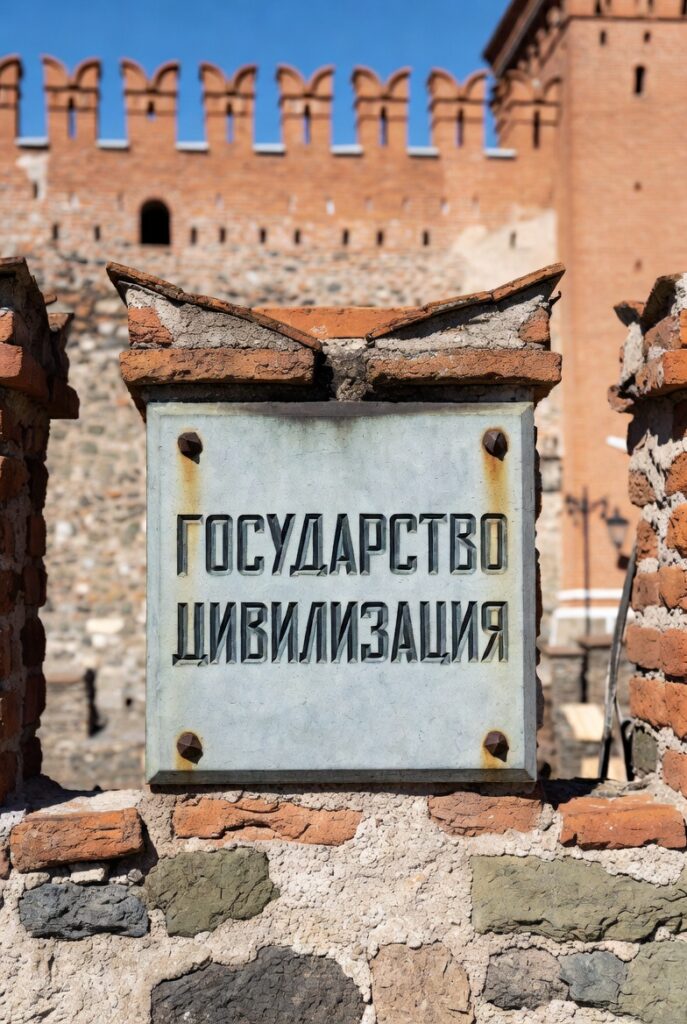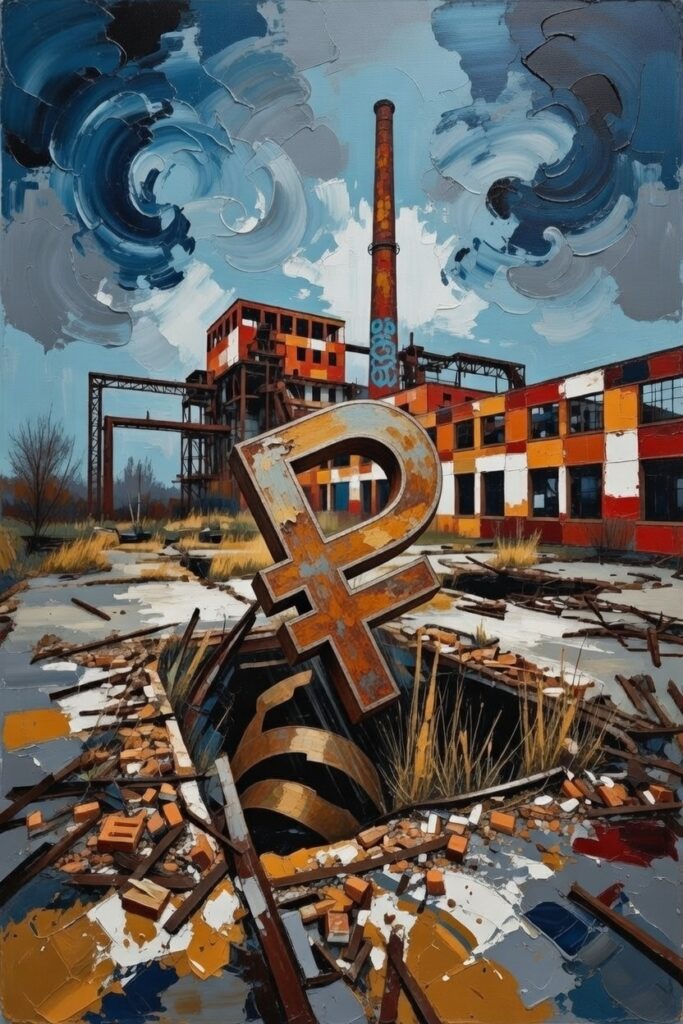The St. Petersburg International Economic Forum (SPIEF) has long lost its original significance as a platform for signing major investment contracts with foreign businesses. Foreign state leaders, who once eagerly attended the event in St. Petersburg, have shunned one of Russian President Vladimir Putin’s favorite gatherings since the start of the full-scale war. As a result, the forum has transformed into a stage for Putin’s personal showcase and a platform for presenting the successes—often exaggerated—of large Russian businesses, state corporations, federal agencies, and regional administrations. News of signed contracts post-2022 has been replaced by photos and videos of bizarre exhibits, robots (typically Chinese), and branded figurines. For instance, this year, the Moscow Region’s Channel 360 distributed replicas of the popular Chinese toy Labubu featuring the faces of Russian political figures. An international event meant to attract foreign audiences has, over the years of war, become a display of Russia’s economic «successes,» often illusory.
Vladimir Putin’s speech, however, remains the forum’s centerpiece. The president started on an optimistic note, citing convenient figures to highlight economic achievements. For example, he told the audience that Russia’s GDP was «growing at rates above the global average.» Putin added that the oil and gas sector’s share in this growth was declining but failed to mention that the growth was primarily driven by the military industry. His speech resembled a Federal Assembly address, which Putin has yet to deliver. There was no room for pessimism in his remarks. He enthusiastically discussed new technologies—”digital platforms" and «artificial intelligence.» These words stood in stark contrast to the publicly voiced concerns of prominent Russian officials and lawmakers. Economy Minister Maxim Reshetnikov warned that the country is «on the brink of recession.» State Duma member and long-time chair of the budget committee, United Russia’s Andrey Makarov, cautioned that «the state may run out of money to meet ever-growing needs,» risking a fate similar to the USSR’s. Typically optimistic Sberbank head German Gref spoke of an «perfect storm» approaching the Russian economy, while Central Bank chief Elvira Nabiullina noted the economy’s «exhausted resources.»
The root cause of these expert-identified problems is the war against Ukraine and resulting sanctions. However, judging by Putin’s subsequent statements, nothing will change on this front. The president reiterated that Russians and Ukrainians are «one people,» implying that «all of Ukraine is ours,» and did not rule out the Russian army attempting to capture the city of Sumy. «Where the foot of a Russian soldier steps, that is ours,» Putin threatened international investors. Such words from the president shattered the «showcase of illusory successes» that his subordinates had diligently built. Clearly, the war and new territories preoccupy Putin so much that he cannot refrain from discussing them, even at SPIEF.
Explosion in LDPR
One of the most prominent LDPR deputies, Yaroslav Nilov, head of the State Duma’s Labor and Social Policy Committee, criticized the party’s current leadership, including its chairman, Leonid Slutsky. In response, Slutsky-loyal federal parliamentarians and regional branches accused Nilov of betrayal and threatened his expulsion from the party. The formal trigger for Nilov’s outburst was a conflict between former LDPR Moscow City Duma candidate Oleg Novikov and the Moscow branch leadership.
«Today, unbelievable things are happening in our party—principled people with their own positions are simply thrown overboard if they are too active and dare to disagree with the ‘general line.’ This isn’t a mistake; it’s the system. Active and thinking LDPR members are now labeled ‘undesirable,’ and dissent is met with genuine repression. Dialogue with deputies and activists resembles a foreman talking to migrant construction workers,» Nilov wrote on his Telegram channel. He added that Slutsky «doesn’t control many processes» in the party and that such a situation would have been unimaginable under the party’s late founder, Vladimir Zhirinovsky.
Nilov was subsequently criticized by LDPR State Duma deputy and former intelligence officer Andrey Lugovoy, as well as several regional branches. The Kursk region branch called his remarks «betrayal,» while Nizhny Novgorod’s Liberal Democrats urged federal leadership to «take measures» against Nilov. Official comments from the party’s top brass suggest such measures are forthcoming.
This wasn’t the only LDPR scandal this week. The Telegram channel «Ostorozhno, Novosti» published a recording of a conversation between Maria Voropayeva, deputy head of the party’s apparatus and a close Slutsky ally, with regional branch leaders. In it, she berates party members for poorly promoting the three-year anniversary of Slutsky’s chairmanship and threatens personnel consequences. Voropayeva did not deny the conversation took place.
The simmering conflict within LDPR has persisted since Leonid Slutsky’s appointment as chairman in 2022. Backed by the Kremlin’s political bloc, Slutsky distanced himself from his party affiliation, emphasizing his work with pro-Russian politicians abroad (he previously chaired the Duma’s CIS Affairs Committee and later the International Committee). This decision dissatisfied Zhirinovsky’s old guard, with prominent figures like Yaroslav Nilov, Smolensk Governor Alexey Ostrovsky, and Khabarovsk Governor Mikhail Degtyarev believing themselves more worthy successors. Appointing a Zhirinovsky ally would have caused less jealousy among his team. However, Slutsky was more convenient for the Kremlin, and his leadership status depended entirely on the Presidential Administration (AP) for its continuation. Slutsky’s subsequent actions only reinforced the intraparty opposition’s view that he lacks charisma and makes constant public policy blunders. Despite the AP’s wishes and efforts by Kremlin political strategist Sergey Kirienko’s trusted aide Andrey Polosin, Slutsky finished last in the 2024 presidential election instead of second. This was likely due not only to Slutsky’s lack of charisma but also to the party apparatus, now controlled by Maria Voropayeva.
An open clash between Zhirinovsky’s team and the new chairman and his circle was inevitable, and it has now erupted. State Duma elections are just over a year away, and Russia’s systemic parties are already drafting preliminary candidate lists. Leonid Slutsky likely doesn’t want his critics, especially high-profile ones like Yaroslav Nilov, on those lists. Nilov has chaired the Labor and Social Policy Committee since 2016, after heading the Religious Affairs Committee. Duma committee chairs have long functioned like bureaucrats—drafting documents, advancing Kremlin and government initiatives, and advising big business on lobbying efforts. They are predictable and professional as lobbyists, and Nilov is a quintessential example. This is his strength—the AP and cabinet prefer working with familiar, cooperative figures. Thus, Nilov could still make it to the Duma as an independent single-mandate candidate or a nominee of another systemic party, such as United Russia or New People. A move to New People could siphon voters from LDPR if the campaign is well-executed. Nilov seems to consider this a realistic option, already writing that LDPR’s leadership is deviating from «Zhirinovsky’s principles”—a sore point for Slutsky’s circle, as the party’s campaigns still rely heavily on Zhirinovsky’s legacy. A veteran Zhirinovsky ally joining another party could leverage this image, claiming the new party aligns closer to Zhirinovsky’s positions. This could jeopardize LDPR’s chances of securing second place in the Duma elections. The Kremlin’s political bloc aims to displace the Communists from this position, and LDPR is currently their top candidate for «second party.» However, if voters shift to another loyal party, political managers are unlikely to defend Slutsky and his team.










